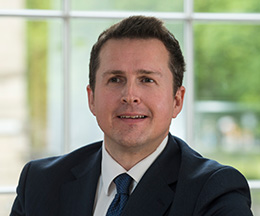 The General Register of Sasines dates back to 1617 and is the oldest national land register in the world. This system has become outdated and impractical so has been gradually replaced since 1981 by the Land Register.
The General Register of Sasines dates back to 1617 and is the oldest national land register in the world. This system has become outdated and impractical so has been gradually replaced since 1981 by the Land Register.
Rather than relying on bundles of old title deeds, the Land Register modernised the system for recording title to land by incorporating all ownership information into a single document known as a title sheet with an accompanying title plan clearly showing what is owned.
This process of moving properties from the Sasine to the Land Register is due to be completed by 2024, however approximately 70% of the Scottish landmass is still to be registered. In order to speed up the transfer from the old system to the new, landowners are encouraged to voluntarily register their land.
There are many benefits to voluntary registration. Once registered, property transactions will be faster, cheaper, and simpler. The Land Register also provides greater clarity and certainty through mapped boundaries and a comprehensive record of rights which benefit the land and burdens imposed on the land. This, together with a state-backed warranty of the information in a registered title, means organisations know exactly what they own, which assists with business planning and asset management. Furthermore, it provides landowners with reliable protection against ownership disputess.
Voluntary registration also avoids the potential for Keeper induced Registration. This is where the Keeper of the Land Register (the person with overall responsibility for leading the Registers of Scotland) chooses a property without the consent of the owner to register. The principal drawback of this is the landowner’s lack of control, and the possible resulting expenses incurred in reviewing the Keeper’s work and correcting errors.
Registers of Scotland are keen to persuade as many commercial property owners as possible to engage in voluntary registration. They are offering assistance through their dedicated team of advisors, and landowners will benefit from a 25% discount on voluntary registration fees.
An examination of a Sasine title can be extensive, and due to uncertainty of descriptions, lack of plans or simple inability to trace a deed, extensive experience is required to complete a voluntary registration and it is sensible to seek expert legal advice if you are considering undertaking this valuable exercise.
Specialist Commercial Property Lawyers, Edinburgh
If this blog has raised any questions or you would like advice in this area Murray Beith Murray, have extensive experience in voluntary registrations and would be happy to assist you with this, or any other legal matter. Please get in touch today using the enquiry form or call us on {{CONTACT_NUMBER}}.
We are one of Scotland’s leading private client law firms. For over 170 years we have specialised in meeting the legal, financial and administrative needs of individuals and families, family trusts, charities and private companies. Our approach to client service is friendly and responsive, and we operate with the highest standards of integrity and professional expertise.